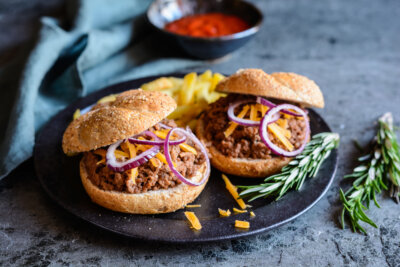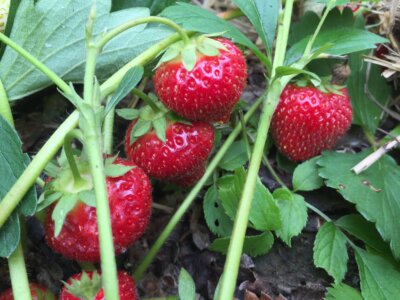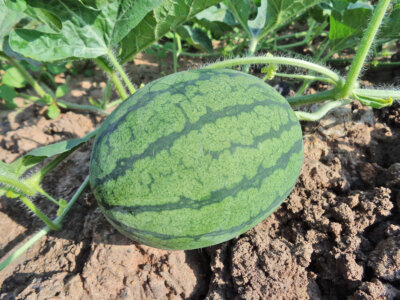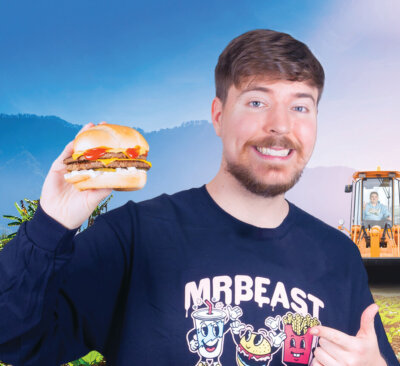Head Over Fields Farm nears the end of its first successful season
Katie Rose Leonard never intended to be a farmer. After graduating from college, she pursued her dream career in environmental education. But while working on water quality restoration on the east end of Long Island where the land forks, her own path diverged from that plan.
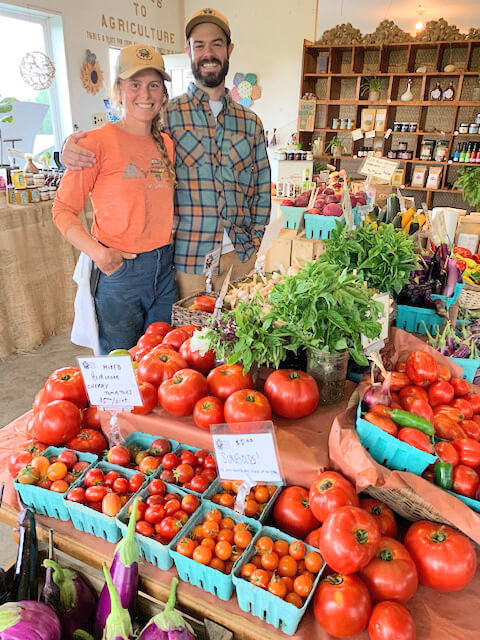
“My employer in our advocacy work was always beating up on ag,” the 31-year-old recounts on a blistering August day, sweat beading on her nose. She and her business partner and fiancé, Bryan Seward, 32, are sitting outside of their recently opened farm stand on Route 7, surrounded by the land they purchased earlier this year. “All of ag, as polluters. And it bugged me… We all eat. And farmers are critical to that piece of the puzzle. “
She decided to learn more about farming and then applied to apprenticeship programs. Her experience at Amber Waves—a woman-owned and operated organic farm in Amagansett, New York—changed her life. Katie Rose discovered that she loved and had “a knack for the work,” and she could spend most of her day outside, a big part of the reason she wanted to be in environmental conservation.
Eventually she and Bryan, a native Vermonter whom she met while they were both at Bucknell University, moved here and began a search for their own piece of farmland in Chittenden County. Bryan worked as a risk management consultant, which he still does, and Katie Rose garnered more organic farming experience at Common Roots in South Burlington and then managed five acres of vegetables for a 170-person CSA in Bristol. Through it all, her vision and experience guided them.
“I’m not trained as a farmer,” Bryan acknowledges readily, crediting Katie Rose with teaching him about eating healthy food and organic farming. “I cannot offer the same level of value to the farm as she can,” he says proudly. He hopes one day to work with her full time, but for now he provides critical financial stability to the enterprise, while also helping run the stand. “I can’t tell you how many people said to us, if you can, keep some off-farm income because there’s just a lot of things that pop up.”
At the same time Katie Rose and Bryan were looking for a farm, John and Carol Snow of Charlotte were on their own hunt: to preserve most of the agricultural land they had purchased in 1994 but never farmed themselves. “We wanted the land to stay open, and we knew if we didn’t do something while we were still here, that the pressure for development would be too high on anyone else,” John explains. “And to conserve it using some of the available resources, federal and otherwise, the owner of the land had to be a farmer…”
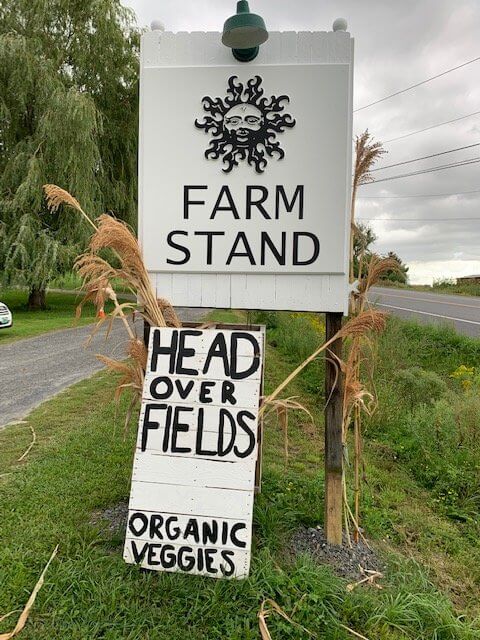 The couples met through the Charlotte Land Trust, beginning a years-long process that culminated in the March 2021 sale of 76 of the Snows’ acres to Katie Rose and Bryan. Significant financial help came from a number of sources, including the Town of Charlotte, the Charlotte Land Trust, the Vermont Land Trust, and the USDA through its Beginning Farmers and Ranchers program. In total, 71 acres were placed in a permanent conservation easement for agricultural use, with a five-acre exclusion for an eventual house.
The couples met through the Charlotte Land Trust, beginning a years-long process that culminated in the March 2021 sale of 76 of the Snows’ acres to Katie Rose and Bryan. Significant financial help came from a number of sources, including the Town of Charlotte, the Charlotte Land Trust, the Vermont Land Trust, and the USDA through its Beginning Farmers and Ranchers program. In total, 71 acres were placed in a permanent conservation easement for agricultural use, with a five-acre exclusion for an eventual house.
Barely one growing season into the endeavor, with just one acre under cultivation and without a greenhouse or substantial farm equipment of her own, the wisdom of investing in this first- generation farmer is manifest. It’s visible not just in the long red scratches on both of her arms, but in the abundance of gorgeous organic produce at the stand—over 50 varieties alone this year; in the weekly boxes for the farm’s CSA customers; and on the menus of a number of local restaurants. Next year, Katie Rose plans to double her vegetable production. She pointed out a newly worked piece of ground for the expansion.
Bryan and John Snow are both impressed that, apart from some limited volunteer help, Katie Rose operates the farm singlehandedly. Typically, she puts in 70 to 80 hours per week on site. And while her next challenges include digging a well, erecting a greenhouse and finding reliable and affordable help, Snow is optimistic that she will succeed. “Carol and I find…Katie Rose’s passion for farming and food production energizing. It is a vision that fits so nicely with our hopes for the land.”
Bryan talks sensibly of two- and three-year plans. Katie Rose’s dreams are long-term and bold: bringing grazing animals back to the farm; education programming for children; paid mentorships similar to the one she went through; an incubator to help other farmers start their businesses; and field-to-fork dinners and programs that bring the community together. It’s easy to grasp why her mother picked the name for the farm, Head Over Fields, a playful twist on how Katie Rose describes falling for farming.
Katie Rose feels a special affinity for and responsibility to other women farmers. “I love to help women succeed. I’ve already faced a number of challenges being in agriculture… There’s always an assumption that it’s not just you, that there’s someone else [doing the work].” Not, she adds pointedly, from other farmers, who have been very supportive. “We all relate to each other in a way that only we understand.”
The couple are grateful for the community support they have received. “Vermont is such an incredible place to be in agriculture,” Katie Rose enthuses. “The most exciting and heartwarming thing was how our neighbors and other folks really stepped up. We’ve been shown nothing but kindness”—especially from the Snows, they emphasize.
Ultimately, they feel a sense of responsibility to pay forward the help and mentoring that launched them. On a walking tour of the farm, Katie Rose stops in front of a big patch of sunflowers planted to be visible from the top of nearby Mt. Philo. It is a nod to the partnerships that conserved the land and its viewshed and made it possible for them to be there. “Everyone’s watching, and we know that, and we want to be respectful of this space that has been open for so long.”
Related Stories
Popular Stories
If you enjoy The Charlotte News, please consider making a donation. Your gift will help us produce more stories like this. The majority of our budget comes from charitable contributions. Your gift helps sustain The Charlotte News, keeping it a free service for everyone in town. Thank you.
Andrew Zehner, Board Chair



